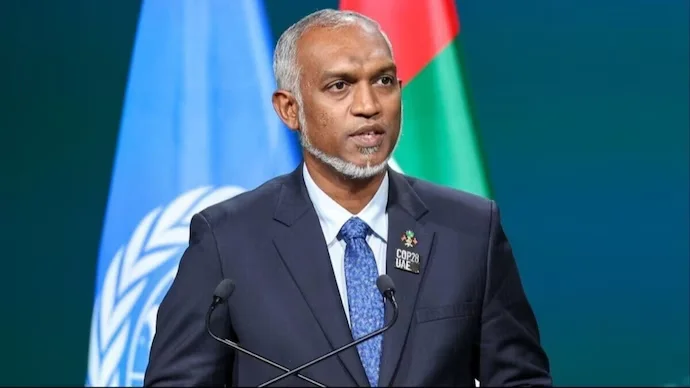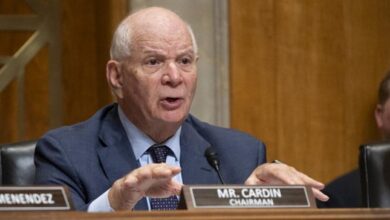Maldives’ Opposition parties hit out at government for its ‘anti-India stance’
Opposition parties in the Maldives have expressed concern over their government's 'anti-India stance,' emphasising the importance of maintaining a positive relationship with India.

Amid a diplomatic row between India and the Maldives, the two main Opposition parties in the Maldives on Wednesday expressed concern about their government’s ‘anti-India stance’, further terming India as the ‘most long-standing ally’.
In a noteworthy development, opposition parties in the Maldives have criticized President Mohamed Muizzu‘s government, accusing it of adopting an anti-India stance. The condemnation from opposition groups underscores concerns about the diplomatic relations between the Maldives and India, traditionally characterized by cordiality and cooperation.
The opposition’s censure comes amid allegations that President Muizzu’s administration has taken measures perceived as unfavorable towards India. The historically friendly ties between the two nations have been marked by cooperation in various sectors, and any perceived shift in stance raises eyebrows and prompts political discussions within the Maldives.
The condemnation is likely to amplify the ongoing political discourse within the Maldives, with opposition parties demanding clarity on the government’s foreign policy decisions and seeking to hold the administration accountable for any perceived deviations from established diplomatic norms.
Diplomatic relations between neighboring countries play a pivotal role in shaping regional dynamics and have implications for various sectors, including trade, security, and people-to-people connections. The opposition’s criticism indicates the sensitivity of foreign policy decisions and their potential impact on the geopolitical landscape of the region.
As President Muizzu’s government navigates these allegations and responds to the opposition’s criticisms, it adds a layer of complexity to the domestic political landscape in the Maldives. The dynamics of diplomatic relations will likely be closely monitored not only by political stakeholders but also by regional observers interested in the stability of South Asian geopolitics.
In conclusion, the condemnation of President Mohamed Muizzu’s government by Maldives opposition parties for an alleged anti-India stance introduces a significant element into the country’s political discourse. The diplomatic implications of such criticisms underscore the importance of maintaining transparent and constructive relations between neighboring nations, with the potential to shape the broader geopolitical landscape in the region.




